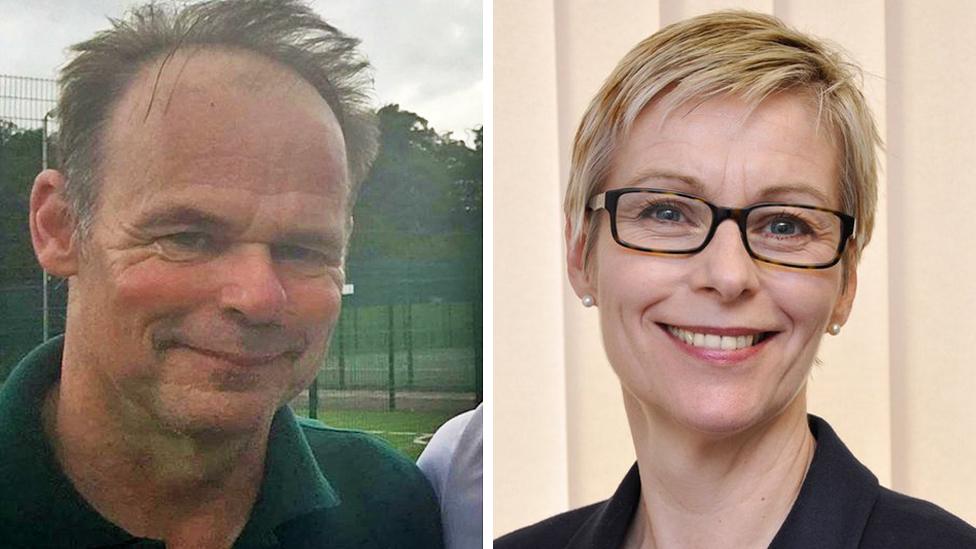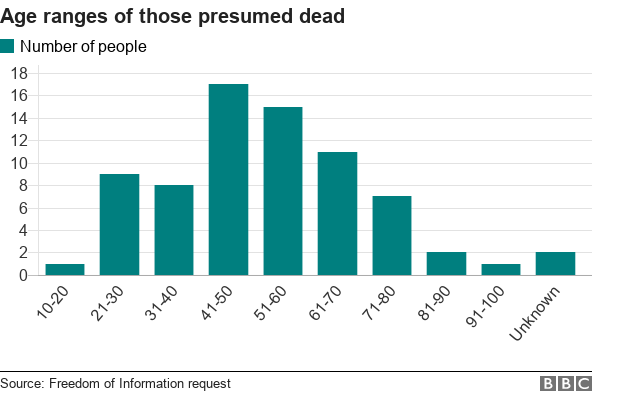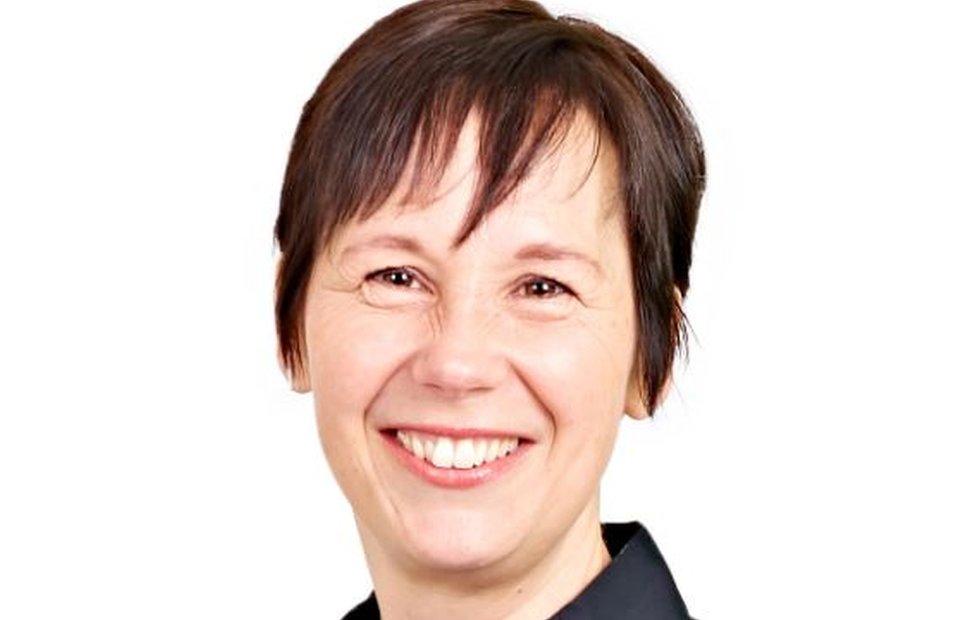Missing presumed dead: New law urgently needed, say families
- Published

Sarah Rushton said she encountered "so many barriers" when she tried to manage the finances of her brother Gavin who went missing while travelling off Ecuador in 2017
New powers to manage the financial affairs of missing loved ones are urgently needed, families have said.
BBC research has found the number of missing people declared presumed dead since a law change in 2014 has been lower than expected.
About 80 people have been presumed dead under the legislation - the government had expected about 40 a year, external.
The charity Missing People said the families of the long-term missing often ended up facing financial ruin.
The Presumption of Death Act, external lets families take over the financial affairs of a missing person and came into force in October 2014.
But a further law allowing families to take over a missing person's affairs without having to testify they believe that person is dead is still awaiting ministerial approval.
'So many barriers'
The charity Missing People said families of those who had disappeared often ended up in a legal limbo unable to alter mortgages or cancel direct debits unless a presumption of death certificate was gained.
The Act is meant to allow families to resolve the financial and practical affairs of a missing person who is unexpected to return.
The number of people presumed dead has fluctuated between 16 in 2015 and 21 in 2017.
There were 18 presumption of death registrations made in the first 11 months of 2018, with figures for December not yet available.
In 26 of the cases since 2014 the place of presumed death has not been specified. Of the others, 22 people are believed to have died in the UK, five in Spain, three at sea and two in the Maldives. There are a number of countries around Europe, Asia, Africa and South America where one of the missing British people is presumed to have died.

The most high-profile case in which a presumption of death certificate has been issued is that of Lord Lucan, whose death certificate was issued under the new legislation 42 years after he vanished in 1974 when his children's nanny was murdered.
Others include that of John Halford, from Milton Keynes, who unexpectedly went on holiday alone in 2011 after his 25-year marriage ran into difficulties and disappeared.
Sarah Rushton's brother Gavin, an analytical chemist and keen traveller from London, disappeared on the island of San Cristobal near Ecuador in March 2017.
His body has never been found.
Ms Rushton described there being "so many barriers" to being able to handle her brother's financial affairs - especially his banking and direct debits.
"You have the trauma of having your brother missing and on top of everything you have to deal with a huge amount of bureaucracy, and you feel like you are begging companies to assist you," said Ms Rushton, from Enfield.
"I knew after 10 days that he was probably dead as he wouldn't have been out of contact for that long."
Ms Rushton also claimed she was given the wrong information about what steps she could take from both the Foreign and Commonwealth Office and police. Both organisations, she says, told her she would need a death certificate from Ecuador before being able to pursue a presumption of death case in the UK.
In the end she successfully applied for a presumption of death certificate.

Sarah Young, a partner at Ridley and Hall Solicitors in West Yorkshire, has dealt with many presumption of death cases
The Foreign Office said: "We maintained close contact with the Ecuadorean authorities and search and rescue teams, and we directed the family to specialist missing persons organisations, and to seek additional advice from their lawyer."
Huddersfield-based lawyer Sarah Young said it was "depressingly common" for families to be given incorrect advice about what steps they could take in a missing person case.
"I constantly feel I am fighting against a bureaucracy that isn't helping people," said Ms Young, a specialist in missing persons case law.
"I have had clients who have been told by the Foreign Office they have to wait for seven years and get a death certificate from the country (in which they went missing) before they can do anything.
"The police sometimes say that too."
The Foreign Office did not respond directly to Ms Young's claims while a spokesman for the College of Policing said police officers should refer families wanting information about managing a loved one's affairs to the charity Missing People, external.
'Tough and traumatic'
Susannah Drury, policy director at the charity Missing People UK, said while the presumption of death route suited some families, it did not suit many others for whom the idea of having a missing person declared dead when they believed the person was actually still alive created a "living nightmare".
"Lots of people do seek presumption of death through the courts when they believe the loved one is dead or there is very clear evidence that they have died," she said.
"It is a tough and traumatic step for families to take.
"For some families it is never the right step to take. They hope and believe their loved one will return and they want a life for them to come back to."
She told how in one case the family home of a long-term missing person was repossessed because the family could not afford to keep up the mortgage repayments.
"It is heartbreaking," said Ms Drury. "And we know that families have felt forced to go through the presumption of death route (in order to take control of the finances)."
New legislation - called the Guardianship (Missing Persons) Act, external and allowing families to take over a missing person's affairs without having to testify they believe that person dead - has not yet come into force despite gaining royal assent in April 2017, as it is awaiting ministerial sign-off.
"More and more families are in need of the new guardianship option," said Ms Drury. "It is getting more and more urgent."
The Ministry of Justice said while it had never committed to a date for the new rules coming into force, the new powers were expected to become available to families from July this year.
A Ministry of Justice consultation, external on the Guardianship Act is currently under way.
- Published8 June 2018

- Published3 February 2016
